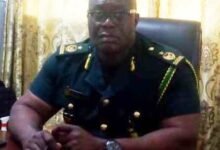Govt ponders over introduction of gifted, talented education

The government is considering introducing gifted and talented education into the country’s educational system to drive the transformation it desires, the Minister of Education, Dr Yaw OseiAdutwum has disclosed.
According to him, as the country embarks on the Science, Technology Engineering and Mathematics (STEM) agenda, it was also important to focus on children who were gifted and talented to enable them function effectively within the school system.
Speaking on the topic “STEM Education for Socio-Economic Transformation” at the Education Update series organised by the Academic City University College in Accra, yesterday, DrAdutwum said it was working with cabinet to consider mainstreaming it into the system.
“We are now working with cabinet and very soon we will continue with our stakeholder engagement to make sure that gifted or talented education becomes part of the Ghanaian education ecosystem,” he said.
The Minister explained an educational system which assumed that only children who could memorise were fit for purpose was wrong and that would have to change.
“Research has shown that five per cent of every population anywhere in the world is talented and gifted. It also shows that 10 per cent of the world population, irrespective of where they were born are gifted and talented or gifted or talented and some of them maybe secondary or basic students,” he emphasised.
Touching on STEM education, he said Ghana could only leapfrog into the fourth industrial revolution if it makes STEM the core of the country’s education.
To this end, he said government was investing in creating the right environment for the teaching and learning of STEM in the country.
He said the government was going to establish ten of STEM Education centres in the country to begin a pilot of teaching and learning of STEM in the country.
So far he said the ten which included one in Abomusu in the Eastern Region, Kpasenkpe in the North East Region, Diaso in the Central Region and Kwadaso in the Ashanti Region were at various stages of completion and would begin enrollment from next academic year.
DrAdutwum said government was committed to dealing with the disparities existing in the current school structure to ensure that all children were offered equal opportunities in the country.
He said the weakest link in the current educational structure of the country was the Junior High School level, stressing that “The poor implementation of the 1987 educational reform limited secondary education to three years but in actual sense it is six years with the first three years at the Junior Level and the remaining three at the senior level.”
DrAdutwum said government was working to correct the weakness to enable Ghanaians derive the full benefits of education.
He also used the occasion to assure that government would continue with the E-block projects initiated by the previous government adding that, “Already a number of such projects have been completed and where it is not fit for purpose, we are adding boarding facilities to it to enable students’ access it.”
BY CLIFF EKUFUL









